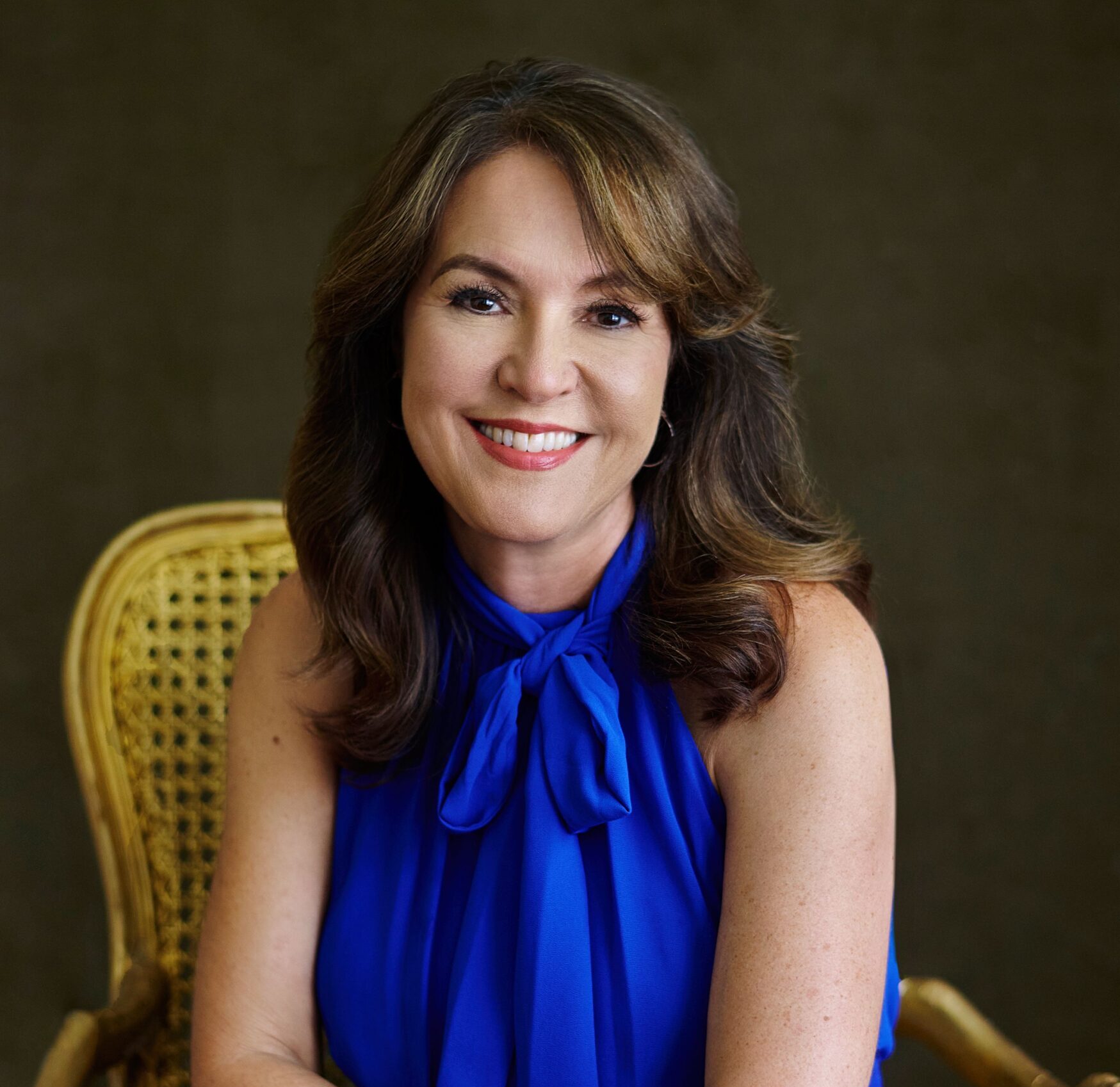
Finding financial freedom started a little rough for me.
“I want it.”
“I deserve it.”
“I’m not going to wait – I want it now.”
Probably those statements sound like something you have heard a kid say when begging for a toy or video game. Unfortunately, it was neither – this was me at 25 years old talking to my husband of 3 years about the brand new SUV, in the perfect shade of green, that I insisted we buy.
Forget the fact that I had student loans about to come due. Forget the fact that we had built a new house less than a year before. Forget the fact that we had exactly $0 saved to buy a car or the fact that my current car was in perfectly fine shape. Nope, none of that mattered because I WANTED IT.
Sigh.
What I wouldn’t give to have a talk with my former self about the joy of finding financial freedom. We would have saved YEARS of stress, of interest, of worry and instead invested in our future, in peace, in God’s calling for our finances.
What Does Financial Freedom Mean?
Imagine you are on your way somewhere important when suddenly your car temperature gauge redlines and smoke starts to pour out from under the hood. How do you feel at that moment?
Or try this – imagine your parent, child or best friend gets an amazing and important opportunity (maybe a medical breakthrough, a school program, or a mission trip) but it can only happen if they buy an expensive ticket they can’t afford so they are asking you to help. How does that feel?
Or imagine you are in the midst of an amazing career that is very lucrative but God calls you to leave it so you can work for a non-profit doing really important work that pays peanuts. How does your gut feel?
Financial freedom means something a little different for each of us. In the busted car example, finding financial freedom allows you to call the mechanic without fear, knowing you have saved up for inevitable repairs even though you didn’t know when they would happen.
Finding financial freedom allows you to give, within your means, to help with that ticket for your loved one without pause or concern. Finding financial freedom allows you to consider where God is calling you to work without having to just focus on the salary.
Put simply, finding financial freedom allows you to LOVE – love yourself in the hard times, love others by partnering with them financially, love God by valuing what He values first.
Biblical Principles for Financial Freedom
The Bible says so much about finances that it is hard to narrow it down to a manageable list to share with you. 11 of Jesus’s 40 parables relate to finances or use finances to prove a point and that’s just a fraction of what is found throughout the bible. Let’s look at some key biblical principles about financial freedom.
1) Avoid Debt
Whether you are in the old testament (“the borrower is the slave to the lender.” Prov 22:7b ESV) or the new testament (“Owe no one anything, except to love one another.” Rom 13:8a ESV), scripture is clear that going into debt is a bad idea.
Slaves are required to go to work every day, regardless of what else is happening, because their owners require it. Likewise, someone in debt is required to go to work every day, regardless of what else is happening, because their creditors require payment of the debts owed. Creditors say, you or your child sick? Get to work. A friend has died? Get to work. Your car broke down? Get to work. You get the picture.
Why does God care about you staying out of debt?
“No one can serve two masters, for either he will hate the one and love the other, or he will be devoted to the one and despise the other. You cannot serve God and money.” Matt 6:24 ESV.
While no one intends to love debt, debt can sure make you “serve money” which gets in the way of you serving God.
When I signed on the dotted line for that SUV I had to have, I sure didn’t intend to put my car before God but paying that debt had consequences. I found myself “serving money”. I had to stay in a dysfunctional and unhealthy job, so I could continue making those payments.
Debt also kept my family from being able to give to our church and charities the way we felt called to give, all because we were locked into this debt. I didn’t set out to serve money over God but that was the consequence.
2) Be a Good Steward
We are not all given the same financial means in this life – some people are making superstar athlete money while others are working minimum wage and everywhere in between. God doesn’t promise us the same financial resources but, in His infinite wisdom,
God does ask the same thing from each of us – to be a good steward with what we have, no matter how little or how much.
In His parable of the 3 servants (Matt 25:14-30), Jesus praises both the servants who took what they were given and stewarded it so it helped the master. His praise doesn’t vary by the outcome – He praises the one who brings the master an additional 2,000 gold coins as much as the one who brings the master an additional 5,000 gold coins.
Both servants took what they were given by the master and made wise decisions based on what the master would want them to accomplish – that is being a good steward. The third servant took what the master gave him and did virtually nothing with it – he didn’t waste the gold he was given but he also didn’t do anything positive with it either. Instead, he thought only of protecting himself – serving himself if you will.
We are each a servant of our master, God, and we are given our financial resources by Him, to make wise decisions based on what God wants us to accomplish for Him.
When I picked out my “dream SUV,” I was serving myself. The car I was driving worked just fine and could have lasted many more years with reasonable care, allowing those funds to be used for God’s kingdom.
I never stopped to ask myself what God would think of my purchase or how that money could best be spent to accomplish what God wanted me to accomplish. I just knew what I wanted and made it happen, which is the opposite of being a good steward.
3) Give Generously
Finding financial freedom must include financial generosity. This is less about God needing our money – remember of course it all comes from Him anyway – but it is about what that generosity means for our hearts.
In Matthew 6:21, we read “For where your treasure is, there your heart will be also.” (NIV).
Consider two different stories from the Gospels. On one hand, we have the widow of Luke 21. Jesus first saw the wealthy giving out of their abundance and then a widow who gave a small amount. He praised her generosity, for it reflected a large percentage of what she had.
On the other hand, we have the rich young ruler of Matthew 10. This ruler asked Jesus what he could do for eternal life and Jesus told him to sell all he had and give it away. That ruler went away sad, unwilling to give up his luxury.
Through her generosity, the widow showed that she was willing to give very much in service of her God while, through his lack of generosity, the rich young ruler showed that he was willing to give very little in the service of Jesus. Where they put their money spoke volumes about what they truly felt in their hearts.
When I insisted on buying my SUV, my heart wasn’t following after God at all. It’s been a day (or two) since then and all I can do is shake my head and wonder what it was that my heart was chasing. Comfort? Status? A reward for my perceived “good behavior” after college and grad school?
While it’s hard for me to recall exactly what my motivation was (if I was even aware of it consciously at that time, which I’m not sure), I know that my treasure wasn’t going after God.
Financial Freedom for My Family
Before finding financial freedom, my home was marked with frequent conflict (I mean, my opening story gave you a good idea of that, right?) but I still wasn’t sure that pursuing financial freedom was worth what I thought it would cost.
In my mind, talking about money with my husband was going to mean more conflict but I also expected it to feel like being on a permanent “money diet” causing even more stress. I was VERY excited about this prospect! Thankfully I was so wrong.
In finding financial freedom, I exchanged conflict for more understanding in my marriage. Personal finance is personal so you have to decide what motivates you.
Do you want to finally afford a down payment on a house? Do you want to take a vacation for your big anniversary? Do you want to spend certain nights each month eating out with special friends? My husband and I separately brainstormed short-term and long-term goals and then compared them. This led to great conversations and building together dreams for the future.
This improved communication has grown over the years of working on our monthly budgets together so that we not only stopped fighting over finances but we learned to communicate better in all areas of our marriage.
In finding financial freedom, I found it was less a money diet and more freedom in spending.
By working together with my spouse, we decide how to assign “jobs” to every dollar we make in a zero-sum budget (https://ramseysolutions.com/budgeting/how-to-make-a-zero-based-budget)
We used a form like this one (https://cdn.ramseysolutions.net/pdf/fpu/fpuonline/monthly_cash_flow_plan.pdf?_ga=2.103689856.1682043989.1621902639-2104009024.1621902639) to help us remember what categories we may need to include. Once we did that, we were free to spend within each category as we saw fit.
If I see shoes I want, I can buy them if the money is there in the budget! If we want to go out to eat, we go out to eat if the money is there in the budget! You get the picture. I no longer have to worry, wondering if we have the money for something like before. It’s right there, in the budget!
In finding financial freedom, I live with less stress and more excitement for the future.
After using our budget to get out of debt (by applying the debt snowball https://ramseysolutions.com/debt/how-the-debt-snowball-method-works) to start saving for our future dreams. We have a vacation budget line where we save for future trips. We found and purchased a second home (it’s tiny but it’s in the mountains and we love it). We set aside money, above and beyond our tithing, to bless various charities and worthy causes. So when God moves our hearts, we can give.
What I want for you reading this – yes, YOU – is all of this and more! Further, God wants you to have it as well. When we manage our finances in God’s way, we find financial freedom.
What are Steps to Financial Freedom?
Understanding what God wants us to experience in finding financial freedom still doesn’t change habits for most of us. No one just wakes up one day and declares financial freedom (though wouldn’t it be nice if it was that easy?!).
There’s a big difference between something simple (uncomplicated and easily understood) and easy (achieved without effort). Finding financial freedom is pretty simple but not easy, in part because it requires you to be intentional and consistent.
Today, I want you to start with just ONE action item – track your expenses. Write down every penny spent, for every day of the month, and group them by categories that make sense to you.
This means big expenses, like groceries and mortgage, but also small ones too, like that quarter you give your kid to get gum out of the machine at the grocery. Here are several important steps to finding financial freedom:
- Most people don’t have any idea how to create a budget because they have no idea how much they are spending when they first start. The first month I’m not asking you to make any changes to your behavior because you just need a snapshot of how you have been spending in a typical month. My first month doing this my husband and I were shocked (and dismayed frankly) when our tracking showed that we spent nearly $400 in 30 days on eating out and not one meal was memorable in any way!
- Once you have decided on your goals, you can compare your actual spending to your goals to see what spending aligns with those goals and what does not. That information will allow you to make changes to spending for the next month’s budget.
- Once you start budgeting, this tracking allows you to see in which categories you have money left to spend and which ones are empty. For example, if the restaurant category is empty, you stay home and eat instead.
Financial Freedom through Dave Ramsey
For those of you looking to learn how to budget, become debt-free, and finding financial freedom, I have to recommend Dave Ramsey’s Financial Peace University (https://ramseysolutions.com/ramseyplus/financial-peace).
While Ramsey individually is not without critics, I would be amiss to not give credit where credit is deserved – his program got through my thick skull so I understood how my husband and I could work together to create the habits that have enabled our journey to find financial freedom over the last 17 years.
Ramsey’s seven Baby Steps broke down the pieces of financial freedom into manageable tasks that felt achievable and were directly related to our future goals. My husband and I wrote our first budget 17 years ago this month and we have not missed a month in the years that have passed.
If joining FPU seems like too much for you at this time, I recommend his book The Total Money Makeover Workbook (https://ramseysolutions.com/store/books/the-total-money-makeover-workbook) as a great place to start.
Since we found Dave Ramsey’s books, my husband and I learned to better communicate, creating mutual goals for our family, and designing a financial plan to reach those goals.
Not only do we no longer carry a burdensome car note like my ill-advised SUV purchase, but we also live completely debt-free, including our dream get-away in the mountains, and are planning for our retirement.
Your Future of Financial Freedom
My prayer is that you can see a path to finding financial freedom through my story. What step will you take this week to start finding your financial freedom? I would love to hear from you in the comments.
No Comments
Leave a Comment
Welcome!





I remember years ago before I had kids, my husband and I tracked our expenses and didn’t even realize we were spending hundreds on dining out each month. Small changes allowed us to save more. Tracking spending just like tracking eating brings invaluable awareness to be a good steward! Thanks for these timely reminders.
Arris, thanks for stopping by and I hope Laura’s tips were helpful!
I love your vulnerability i this article! “While it’s hard for me to recall exactly what my motivation was (if I was even aware of it consciously at that time, which I’m not sure), I know that my treasure wasn’t going after God. “
My experience with money is very similar. I tried pursuing financial independence for all the wrong reasons. But now pursue excellent money management as a way to glorify God and do good for others! Thanks for sharing.
Katie, thanks for stopping by and your words of encouragement! Laura does a great job sharing her story and providing valuable insights!
[…] a beautiful gift to witness because it has a profound effect on people’s real needs. We can all offer what we have utilizing the spiritual gift of giving and become better givers as our faith […]
[…] features of the blue SUV, I became excited too. But after further analysis, we realized the car had too much mileage for the price. We had just started searching for a car replacement and had time to decide. We asked questions, […]